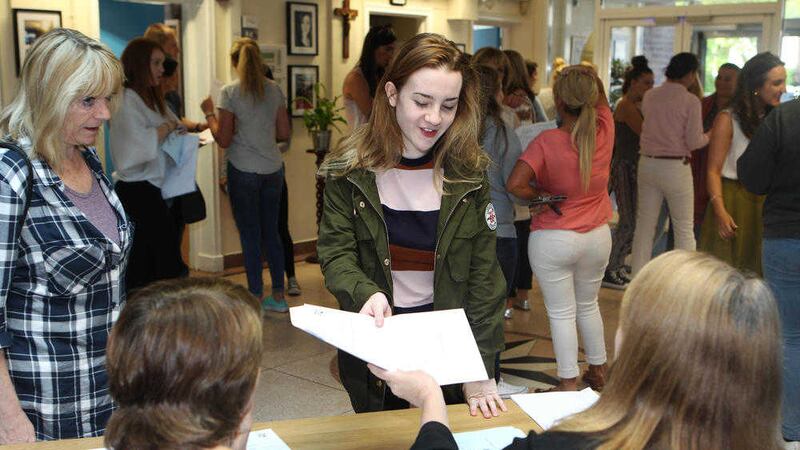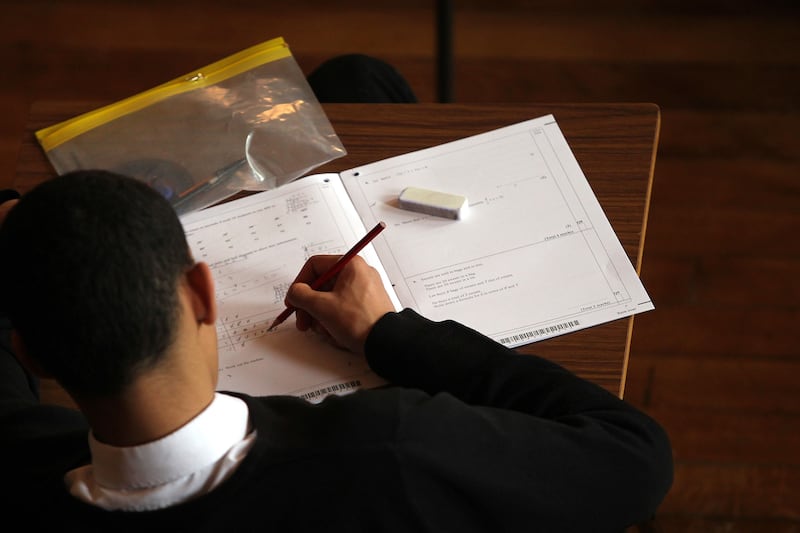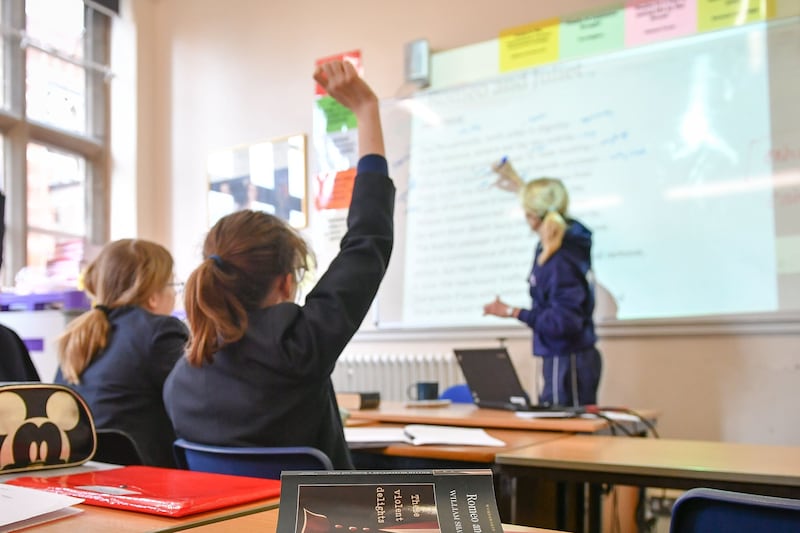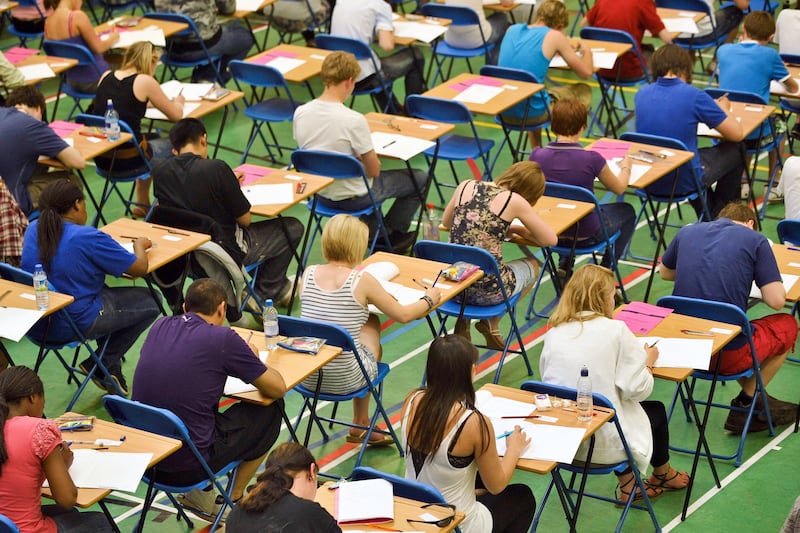PUPILS are continuing to make steady improvements in their GCSEs with small increases across all grades.
Thousands of young people received their results yesterday with north significantly outperforming Wales and England again.
The proportion of Northern Ireland entries awarded A*-C grades rose by 0.4 percentage points this year to 79.1 per cent.
In total, slightly more than two-thirds of entries in England, Wales and Northern Ireland (66.9 per cent) were awarded A*-C - deemed by schools to be a "good" pass. This was a 2.1 percentage point drop on the previous year.
The proportion achieving the top A*- A grades improved 0.5 percentage points to 29.1 per cent, and entries achieving the A* grade now sit at 9.3 per cent, a slight rise on 2015.
In GCSE English, A*- C performance rose to 77.8 peer cent of entries while there was a drop in maths entries with good passes - down to 64.9 per cent.
There was continued strong performances in the sciences with more than nine out of every 10 entries achieving a C or higher.
Girls are still doing better than boys and the gap has widened further in the last 12 months.
There were fewer entries this year - from 171,325 in 2015 to 161,975 - a drop of 5.5 per cent. This had been anticipated, given the five per cent drop in the pupil cohort.
Entries for science, technology, engineering and mathematics (stem) grew, however, by 0.3 per cent. This growth means stem subjects here account for close to one third (31.9 per cent) of all GCSE entries.
The increase in stem was driven by biology, chemistry and computing, the latter seeing an increase in entries of 106 per cent. The computing rise was due mainly to a move away from old style ICT qualifications.
Language entries, meanwhile, declined by 3.7 per cent. Fewer pupils entered French, Spanish, Irish and German.
Justin Edwards, chief executive of the Council for the Curriculum, Examinations and Assessment (CCEA) said he was pleased with the overall performance.
"The strong performance in English and the individual sciences is of particular note, building on the improvements seen in recent years," he said.
"A*-C performance in mathematics has fallen by 1.7 percentage points to 64.9 per cent. Analysis of the data shows that, for 16 year olds, performance in mathematics was stable, with a small decline of 0.2 percentage points from 2015. It also worth noting that, despite the fall this year, Northern Ireland is almost 4 percentage points ahead of the full UK A*-C performance in mathematics."
Education minister Peter Weir said the improved performance indicated the high level of effort being made by pupils and teachers.
"High standards have once again been achieved. I am pleased to see that entries for stem subjects have grown by 2.4 per cent in Northern Ireland. This growth is stronger that the equivalent UK figure of 0.1 per cent and means stem subjects here account for close to one third of all GCSE entries.
"Our young people will now have to choose whether to stay at school, go into further education or enter the world of employment. I am confident that their time at school will give them a sound foundation for whatever they decide and I wish them success for the future."








